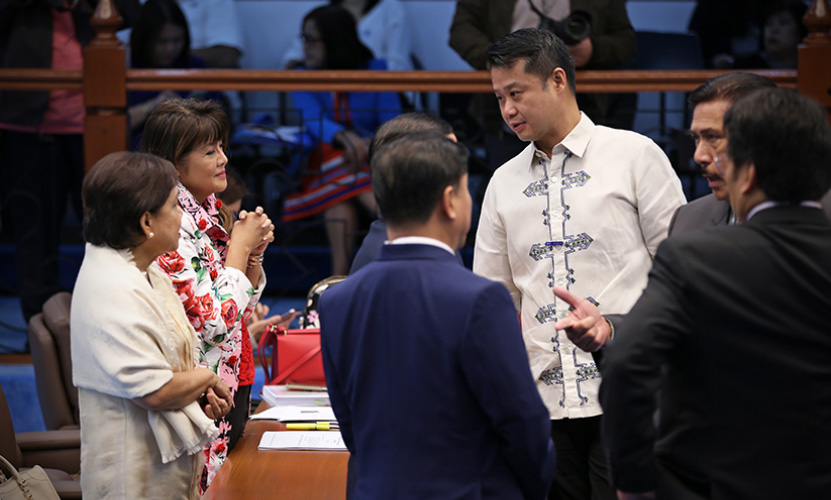
Senator Win Gatchalian filed a resolution to investigate the uncollected taxes from registered and unregistered foreign workers, including those in the Philippine Offshore Gaming Operators (POGO) industry, as well as related issues on the effective implementation of Philippine tax, immigration, and labor laws.
In filing Senate Resolution No. 89, Gatchalian, noted that the significant influx of Chinese POGO workers and the approximately 130,000 individuals not paying taxes to the Philippine government have “clearly raised red flags on the implementation of our tax, immigration and labor laws.”
“There is a need to review our capability and enhance our capacity to enforce our tax, immigration, and labor laws to balance the protection we need to accord our people vis-a-vis to the contribution of industries and foreign workers to the country’s economic growth,” he stressed.
The lawmaker said that based on the Department of Finance’s computation, the government is losing much as P22.5 billion annually from uncollected taxes. He added that the Bureau of Internal Revenue (BIR) estimates that P18,750, excluding taxes on allowances and fringe benefits, are not being collected from each foreign worker every month.
Gatchalian also pointed out last month, the BIR only collected P200 million from foreigners who were mostly Chinese working in the POGO sector. July was the first month that the government mandated the automatic withholding of personal income taxes from the foreign workers.
Citing news reports, Gatchalian further said that the BIR was having difficulty issuing Tax Identification Numbers (TINs) at a faster pace and bigger volume than usual. For July, the BIR reportedly was only able to issue 10,000 TINs to some 130,000 unregistered POGO workers in Manila, Parañaque, and Pasay.
He said these implementation drawbacks, including the failure to monitor the revenues and revenue-generating activities of the POGO industry, do not only have an impact on the potential tax revenue loss, but also raises issues on fairness with respect to Filipino tax payers who regularly pay taxes.
“It is imperative for the Senate to conduct an assessment and careful analysis to determine how these tax collection agencies can better perform their functions prior to introducing another set of laws which these agencies may have difficulty implementing,” he said.
“It is also the Senate’s duty to review policies set forth by the Executive as it annually deliberates on the government’s expenditure plan, which is affected by the projected tax revenues and other macroeconomic fundamental assumptions,” Gatchalian added.
All foreign individuals, whether a resident or not of the Philippines, are liable to pay income tax under Sections 24(A)(1)(c) and 25(A)(1) of the National Internal Revenue Code, as amended, on their taxable income derived from all sources within the Philippines.


